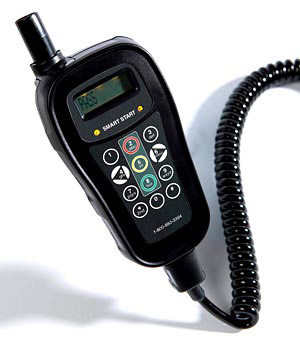Major and Minor Violations and How to Avoid Them
If you fight for and win a driver’s license restoration case with the DAAD, you do not want to violate your alcohol interlock device and lose your driving privileges again.

Breath Alcohol Ignition Interlock Device (BAIID) Violations
Unfortunately, many people driving with a Breath Alcohol Ignition Interlock Device (BAIID) learn quickly that genuine mistakes or malfunctions can result in a resuspension or re-revocation of their driver’s license. The Secretary of State can make a big deal from a minor alcohol interlock device violations. You do not have to settle for losing your driving privileges. If you take the proper steps and ensure you follow the rules, you stand a great chance of avoiding unnecessary problems. A top driver’s license restoration lawyer can frequently help you regain your driving rights if you face a violation allegation.
Avoiding Violations of a Breath Alcohol Ignition Interlock Device (BAIID).
- Never leave your vehicle running and unattended, even momentarily. It is a major ignition interlock violation if you fail to provide a timely rolling re-test for any reason. Your original revocation/denial will be reinstated, and you will lose your license.
- Never exit your vehicle without first ensuring that a rolling re-test has not been requested. Arrive at your destination, physically look at the ignition interlock device, and then turn off the ignition. It would be best if you looked at the device again before exiting. Do not turn your vehicle off after a rolling re-test has been requested without providing a breath sample within five (5) minutes. Failure to provide a rolling re-test is a major violation. Your original revocation/denial will be reinstated, and you will lose your license.
- Periodically start your vehicle, even if it is not being driven daily, to ensure the battery remains charged. If your battery dies, use a tow service or AAA to obtain a jumpstart and send the receipt and a letter of explanation to the Department.
- You or a repair facility (preferably both) must contact the interlock company before making any repairs to your vehicle. Provide notice to the interlock company of the type of repairs and the dates they are scheduled to be completed. Failure to provide this documentation can lead to an unnecessary alcohol interlock device violation.
- Obtain documentation (legible, dated, and signed receipts) for any repairs done to your vehicle. You should even ensure you have tow truck receipts and receipts from auto parts stores. These receipts and a notarized, dated letter of explanation should be sent to the interlock company immediately after repairs are completed. Ensure it is clearly explained on the receipt if a mechanic has possession of the vehicle for over one (1) day.
Tips to Avoiding Alcohol Interlock Device Violations (continued…)
- Receipts with an accompanying letter of explanation should be scanned, uploaded as an attachment, and emailed to MDOS-BAIIDDocumentation@michigan.gov within five (5) days of the completion of the repair. Note that this email is used solely to submit documents and that the Department will not respond to emails.
- Never eat or drink anything (other than plain water) within 15 minutes of providing a breath sample. Be careful using mouthwashes or cold medications like Listerine, Scope, or Nyquil. Many contain alcohol, ranging from about 20% to 30%. You should avoid using any products that contain alcohol. If the machine detects alcohol, rinse your mouth with water and provide a second sample within five (5) minutes. Do not just walk away from the machine. You should keep a bottle of water in your vehicle. Ask your pharmacist if you are unsure if a product contains alcohol. FOLLOW THIS INSTRUCTION CAREFULLY – YOU WILL BE HELD RESPONSIBLE FOR POSITIVE ALCOHOL INDICATIONS.
- With an alcohol reading on your interlock device or other violations such as missed rolling re-test or power losses, it is also advisable that you obtain an objective test to prove you were not drinking. An objective test might involve a preliminary breath test (PBT) from your local police station, sheriff’s department, or State Police post within 1 hour of the violation. It could also involve other chemical tests, such as an Ethyl Glucuronide (ETG) test from a toxicology lab within 24 hours of the violation. Note that doing so will not necessarily avoid a reinstated revocation/denial if a major violation occurs, i.e., a failed rolling re-test. However, a hearing officer may consider the test results at an administrative hearing.
- The burden is always on you to prove that you have continued maintaining abstinence in the event of an alcohol interlock device violation or malfunction.
- Limit the number of people who have access to your vehicle. You are responsible for all violations of the interlock device. The Secretary of State will take action against you if another individual misses a re-test, provides a breath sample that includes alcohol, or otherwise violates the interlock device.
- If you change interlock companies, notify the Department within seven (7) days of removing your first interlock company’s interlock device and installing the new company’s device by mailing the new installation certificate to the Department.
Qualities to Look for in an Attorney for a BAIID Violation
When seeking a lawyer for a hearing with the Michigan Department of State for an alleged alcohol interlock violation, the top qualities to look for are:
- Specialization in DUI/DWI and alcohol-related offenses.
- Familiarity with Michigan’s driving laws and administrative procedures.
- Experience with alcohol interlock devices and related legal issues.
- Strong advocacy and negotiation skills.
- A proven track record of successfully handling similar cases.
When facing an alleged alcohol interlock violation in Michigan, choosing the right legal representation is crucial. LEWIS & DICKSTEIN, P.L.L.C. embodies the essential qualities needed for such a sensitive and complex case. Our attorneys are not only specialized in DUI/DWI and alcohol-related offenses but also possess an intimate understanding of Michigan’s driving laws and administrative procedures. This specialized knowledge, combined with our extensive experience with alcohol interlock devices, positions us uniquely to handle the specific legal challenges these cases present. Moreover, our team is known for its strong advocacy and negotiation skills, which are essential in navigating the intricacies of these hearings. Most importantly, our proven track record of successfully resolving similar cases is a testament to our commitment to achieving the best possible outcome for our clients. At LEWIS & DICKSTEIN, P.L.L.C., we bring unparalleled expertise and dedication, making us the ideal choice to defend against an alleged alcohol interlock violation.

How A License Restoration Attorney Can Help You in Michigan with a BAIID Violation
Complying with a Breath Alcohol Ignition Interlock Device is challenging. Unintentional violations are common. In some cases, these devices simply malfunction. Life can be unpredictable, and even the most disciplined, sober person can have a momentary lapse of thought that results in a minor or major violation.
If you are accused of a major or minor violation, or if you are seeking driver’s license restoration through the Michigan Department of State’s Driver’s Appeal and Assessment Division (DAAD), your best hope of success is with an experienced, skilled lawyer with a track record of success. The attorneys with LEWIS & DICKSTEIN, P.L.L.C. have decades of experience winning driver’s license restoration hearings, and we know what it takes to credibly persuade a DAAD Hearing Officer that your long-term sobriety is reliable and that you should be trusted to drive again legally.
Call us today at (248) 263-6800 for a free consultation or complete an online Request for Assistance Form. We will contact you promptly and find a way to help you.













